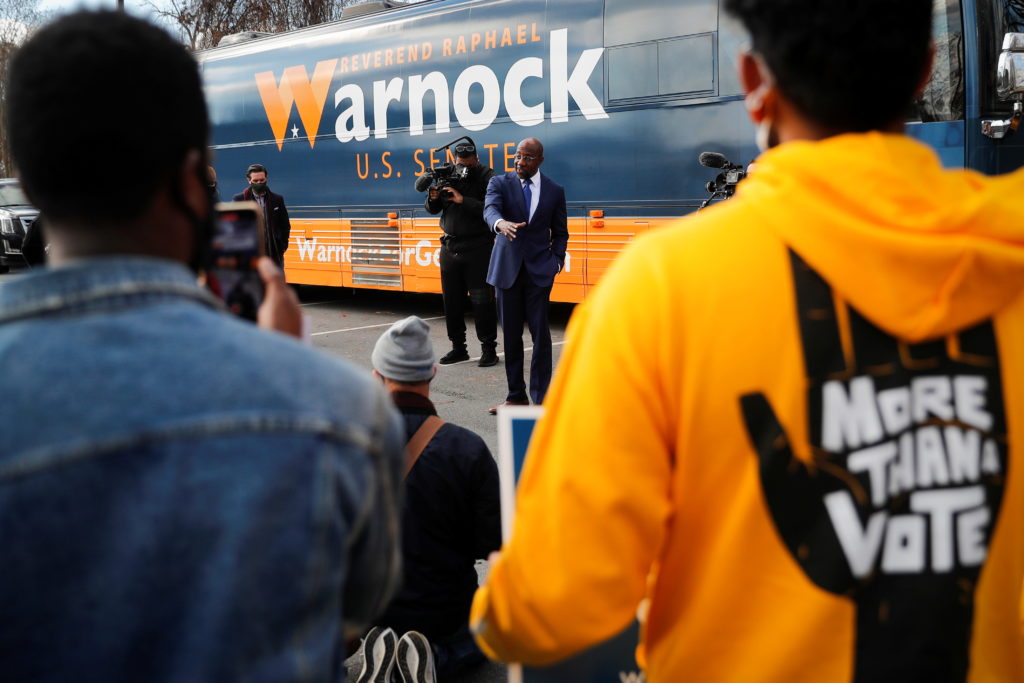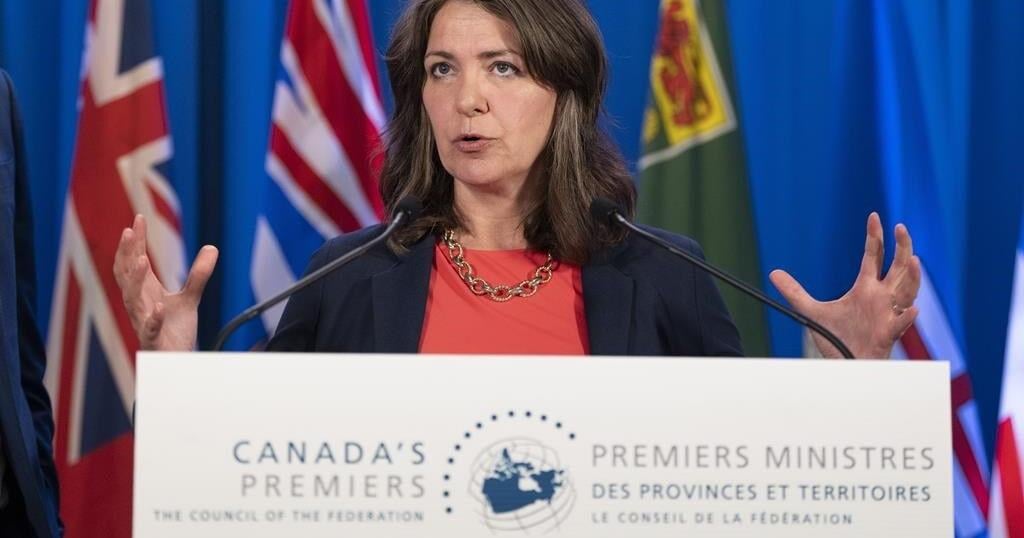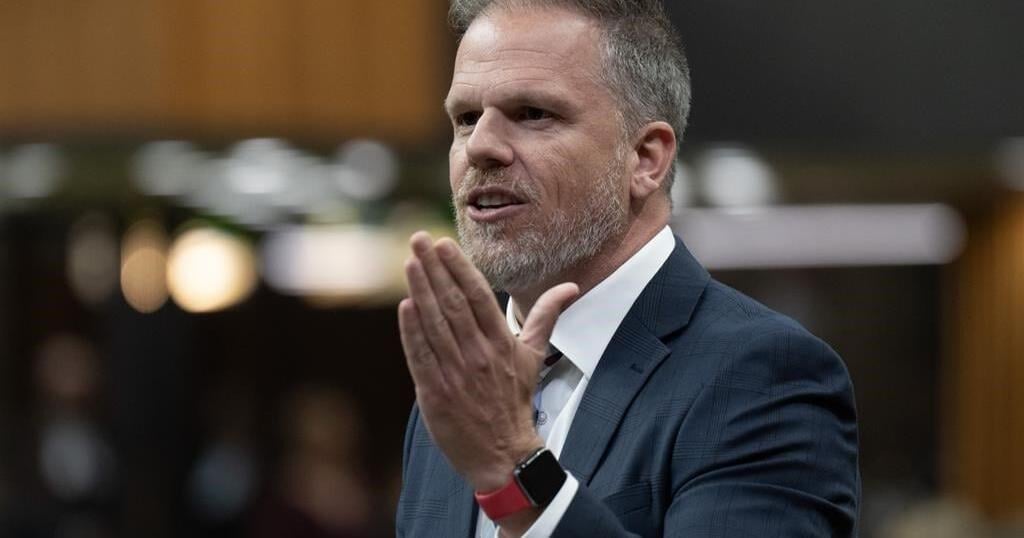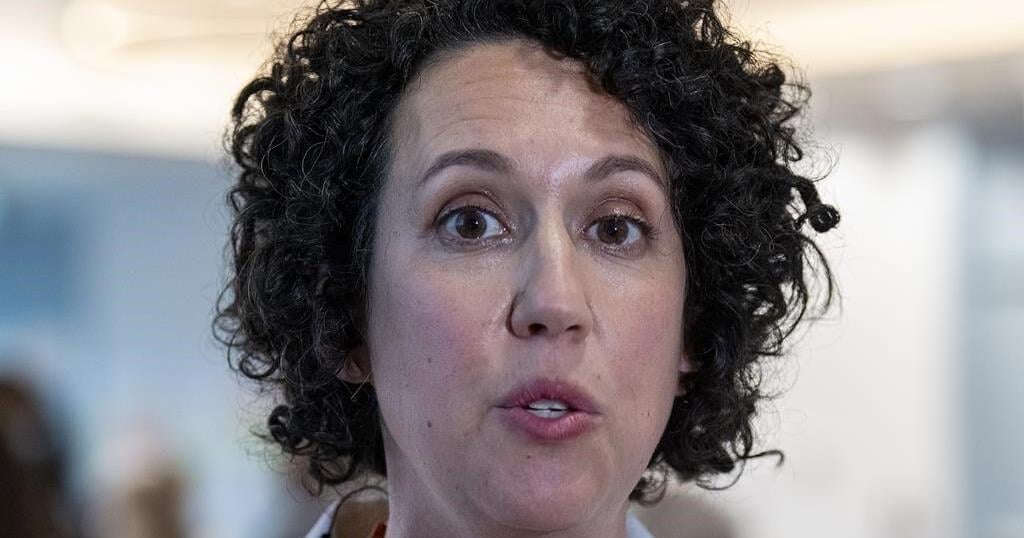Black History Month is not only a celebration of past achievements, but also an acknowledgement of the work Black Americans continue to do to help the country realize its promise of democracy and equality.
Black people remain underrepresented across industries, including politics. But as the country’s demographics and priorities shift, recent elections and appointments have ushered in historic numbers of people of color, women and LGBTQ+ individuals into public office at all levels of government, many of whom represent the first person of their background to hold such a position.
During a time of nationwide discussions about racial injustice, diversity and equity, four Black politicians whose elections were historic firsts spoke with the PBS NewsHour to reflect on their time in office and what this moment means to them.
“It’s an honor of a lifetime, but also a tragedy that we’re still talking about firsts in 2018 when I was elected,” Nevada Attorney General Aaron Ford said. “But as Vice President [Kamala Harris] says, ‘I won’t be the last.’”
The interviews have been edited and condensed for clarity.
Can you talk a little about your background and what inspired you to get into politics?
Andrea Jenkins, Minneapolis City Council Vice President, first openly transgender Black woman to serve in public office in the U.S. (2018): “My background has been one of service to community and advocacy around LGBT issues, even more specifically, transgender issues. I have been a lifelong activist for Black liberation and Black rights. But trying to figure out how to do that in the context of within the system, I think we need an inside-outside strategy. … We need people who are agitators who bring the issues to the forefront. We also need service providers who help people, like in [Texas] right now, people need water, people need shelter, clothes. And then we need policymakers to make good policy to bring all of those things together. So, having done the service delivery, having done the activist part, I thought maybe I should try the elected part to see if we can make some change happen in that regard.”
Aaron Ford, Nevada’s first Black attorney general (2019): “As a former educator, I thought to myself, ‘What can I do to improve the educational opportunities for people in our state?’ So I decided to run for office. I decided to get involved as opposed to being on the outside, throwing rocks. I want to get in and try to effectuate some real positive change in the educational arena. Since then, I’ve seen that education and the economy are intimately intertwined and that led me to continue pursuing the legislative arena [as a state senator]. But then mid-term, during my second term in office, the idea of running for attorney general was presented to me as a consideration and I viewed it as an opportunity … to help more people quicker and be able to utilize my unique background as a lawyer and an educator and as a former senator.”
READ MORE: Black women were vital to the Black church. Here are 2 stories
Utah state Rep. Sandra Hollins, first Black woman to serve in the Utah state legislature (2015): “My occupation is social work. I’ve worked as a social worker in treatment centers with my primary focus being on those who are in poverty and those who are experiencing homelessness. … I have always been active in my community. I’ve always been active where I live because I feel that that’s what you should do when you move into a community, you should give back to that community. And so when the position came open to run for office, the woman who was in this position, Representative Jennifer Seelig, reached out to me and asked me, have I ever considered running for public office before? And after some consideration, I decided to run for office. I honestly don’t know if I would have ever run for public office if I wasn’t asked to.”
Harry LaRosiliere, first Black mayor of Plano, Texas (2013): “I was born in Haiti. My family immigrated to the States when I was almost four years old, lived off 125th and Broadway [in New York City] most of my life. And in 1994 I came to Texas, and prior to coming to Texas it was in 1992 that I decided I wanted to be mayor. That was kind of my calling. I got interested in politics because David Dinkins was the first African American mayor of New York at the time, and that was it. And so my path just slowly took me there, and eventually I became mayor in 2013.”
[embedded content]
When you reflect on your history-making achievement, how do you feel being a ‘first’?
Jenkins: “It’s enormously, just, mind-blowing, to be quite honest with you. I’ve been doing this work for a long time, so it almost makes it feel like I’m new to the scene and that’s not the reality. I’ve been doing this work for almost 30-plus years. But it makes me feel proud to be a part of the annals of American history. … It’s awe inspiring. It’s a little overwhelming to have your name mentioned with Shirley Chisholm and Kamala Harris and, you know, Rosa Parks. I mean, who wouldn’t be proud? It’s quite, quite something.”
Ford: “It’s an honor of a lifetime, but also a tragedy that we’re still talking about firsts in 2018 when I was elected. I reflect back on my upbringing, and from college on I have been, if not the only certainly one of the only Black Americans in the room — in my law practice, in my educational endeavors. And recognizing that there is a burden, unfair or otherwise, that is placed upon me as a Black American, and on all of us as Black Americans to represent the entirety of your race and understand that what I do is more than just a reflection on me. … Recognizing that I represent more than myself, sitting in this position as a top law enforcement officer and top legal adviser in this state, is an important consideration that I keep in the forefront of my mind at all times. It’s a blessing to be here, but it’s also a travesty that I’m the first to hold this position. But as Vice President [Kamala Harris] says, ‘I won’t be the last.’”
Hollins: “I was quite shocked to learn … when I was asked to run for office that I would be the first Black American woman at the [Utah] Capitol and to hold a state-level position. I feel it comes with a great responsibility, one that I do embrace. I know as a result of me running, I’ve had a number of young Black American and African American women who have expressed interest in politics now and see themselves in this role and one day running for office or they have run for office. And so it comes with a great responsibility that I carry, but one that I carry proudly. And I’m very conscious of how I carry myself with the hope that I’m making my community proud.”
LaRosiliere: “I remember after getting elected, being the first Black mayor of the city, they said, ‘What do you think?’ … I said, ‘Well, we already had a Black president, so it’s not that big of a deal in my mind.’ But it is in a sense, because I realized as I started going to schools and seeing kids, how they looked up to me because I look like them, and I was in a position that they just didn’t imagine. We’re a population of about 8 percent here in Plano of African Americans. And so we’re not a big population of the city, yet I was chosen to be mayor. It’s something to those kids. So it’s meant more to me afterwards than before, for sure.”
You often hear from Black people who are the first to hold a particular position that being a ‘first’ can come with enhanced scrutiny or pressure. How have such challenges influenced your time in office?
Jenkins: “I used to hear a lot of Black politicians say, ‘I represent a certain district, but I get calls from Black people from all over.’ It’s kind of a very similar scenario being a trans person. I hear from trans people from around the country, from around the state, from other parts of the city that I don’t necessarily represent. But there’s this voice and this representation that is in these seats of power and people want to reach out to you. … Because I am, you know, Black and transgender, I think there’s a certain amount of expectations that people place on me from their own experiences, like they want me to be someone that, quite frankly, I’m not. … People project their own ideals onto me and then get upset when I don’t necessarily live up to their ideals. So that presents a little bit of a pressure kind of too.”
Ford: “I’ve been an unabashed advocate for speaking truth to power from a position of power, irrespective of the negative consequences that may arise out of them. … “I’m the attorney general now, but before that I was the Senate majority leader and before that I was a Senate minority leader. And each of those instances I would speak up on the issues that some would say ‘that’s not a good idea if you want to get reelected.’ ‘That’s not an issue that folks want to hear about and so you shouldn’t discuss it.’ And a lot of that related to race-based issues. A lot of that related to discrimination in the voting process, for example, in housing and in education. And so I’ve always viewed it as an ultimate waste if I did not utilize my authority and my position to speak to issues that otherwise may not even get addressed.”
Hollins: “I agree with our Vice President Harris, when she says that she is the first, but definitely not the last. My goal is to always open that door for other women of color to walk through it. … But it hasn’t been without its challenges. For me, I not only represent my district, but I represent the Black community. A lot of times when there are challenges or anything that’s going on in the Black community, then I’m brought into that conversation. I get trusted with all of the stories of discrimination that may be happening to them in this state. I’m the one that they trust with the stories and to work out the issue or to address the issue. … A lot of times when I walk into [the Capitol], I’m the only Black woman. And for some people I’m the only and the first Black woman that they have ever met. And so I know when I walk into that room, I’m representing every Black woman in the state of Utah. And so I’m very conscious of that but I embrace it.”
LaRosiliere: “As someone in a position like this where I’m one of the few [Black people] there already, it’s very obvious. I think you’re watched a bit more, and there’s opportunities, I think, to rise and to also set the tone and the example for others. It sometimes does weigh because you feel there’s a magnification on you. … But we’ve been fortunate. We’ve had a good run as mayor and a lot of good things happen in our city. And because of me being in this position, we’ve been able to do some things that we otherwise might not have simply because I had a different perspective.”
Raphael Warnock made history in January, becoming the first African American elected to represent Georgia in the U.S. Senate. In this photo from January, Warnock holds a small rally with young campaign volunteers on election day in Georgia’s U.S. Senate runoff election. Photo by Mike Segar/Reuters.
What keeps you motivated to do this work despite the various challenges you may face?
Jenkins: “It’s a mission, because, quite frankly, it would be really easy to just be like, ‘I’m good. I did my part. Y’all can go fuss with somebody else, because I’m done.’ But, you know, I really believe in the statement that representation matters. And then we need Black voices, we need trans voices, we need people who can relate to the pressures of inner-city life, people that can relate to the challenges that single mothers face, people that can relate to the issues of over policing and all of these things. Because I have long-term experience in this area … I feel like it’s my responsibility to really try to do what I can to move Black liberation forward.”
Ford: “I think back to an ancestor that I just learned about the last couple of years or so: my fourth great grandfather, William. I don’t want to end as he ended, but the story goes this way: He was on the auction block in Fordyce, Arkansas, and he said, ‘I will not be treated like cattle. You will not sell me and separate me from my family.’ So they killed him right there, and then they sold three of his sons to U.S. labor in Texas. One of those sons is my great, great, great grandfather. And the story obviously leads to me, which is the African American attorney general for the state of Nevada. Him standing for his own humanity, irrespective of people trying to treat him as something that he was not, helps to encourage me to continue to stand up, irrespective of what happens to me on Twitter or Facebook or walking in public.”
Hollins I have two things that keep me motivated. Number one is: I know that there’s a number of young women and young Black girls that look up to me. I know that they’re looking to my leadership, and I know that they’re looking to me, as I’m treading this path, to walk behind me. … The next thing is, I tell everybody, when you are doing work around social justice, the best way I can describe it is that there’s just kind of this fire inside of me. And it’s like if I don’t say anything or do anything it’s going to keep burning. And it’s only when I speak up, it’s only when I take action that I could feel that fire subsiding until the next thing comes up. And that’s what keeps me motivated. It keeps me motivated. Something in me won’t let me just sit by and be quiet.”
LaRosiliere: “Being in the position where you can make a difference in direction, tone, policy, allows you to open doors. And so for me one of the things we stress the most is some programs we set up for a summer internship for our high school students, 30 to 40 percent of them first generation college bound. So we provided them skills to connect with businesses and have networking and things like that. So the ability to do those things makes it that much more rewarding in so many ways.”
In recent years we’ve seen a push for diversity and equity that seems to have strengthened in the aftermath of George Floyd’s killing. What do you make of this moment we’re in?
Jenkins: “It feels like we’re on a precipice of really transformational, systemic change. Yet by the same token, that change is being met with the same resistance that it has always been met with throughout the history of this country, and that is violence and threats and death and all of these machinations behind the scenes to limit people’s access to the ballot box and to, I think, undermine folks’ ability through lack of access to basic necessities. … I’m cautiously, cautiously optimistic, but we’ve been on this battlefield for a very long time and some days it feels like the whole world has shifted and everything has changed, and then some days when especially you look at the statistics … all of these things give you pause and you have to wonder, are things changing? … I think Harriet Tubman had the audacity to hope. I think my grandmama had the audacity to hope and I think we have to maintain that level of hope and action. Because hope without action is just a dream, right? But we have to have hope and we have to act.”
Ford: “I feel like it’s deja vu all over again. To be sure, we are standing with an opportunity to do some things, but we’ve been here before. We’ve seen the aftermath of the killings of unarmed Black people over the course of time. And people have piped up, and they’ve been engaged, and they wanted to see change and then they’ve gotten complacent.” …
“I was glad to see law enforcement and civil rights organizations alike chime in and say this is an opportunity for change. But as I have said, the conversation should be almost over, if not over. The time for conversing should have passed such that we are now seeing actual policies and laws implemented that effectuate real change on these issues. And I’m glad to see that, in fact, that is happening. For example, duty to intervene coming up in the aftermath of George Floyd’s killing and the opportunity to have representation at every level.”
READ MORE: Harris’ inauguration puts spotlight on the political influence of Black sororities
Hollins: “It is pretty exciting to see that we’re not only in this moment, but that we’re in this movement right now and that we have a number of young people who are now stepping up to the plate and who are pushing for these changes in policies and pushing for more diversity and more equity in all industries. They’re out there on the front line and they are demanding change and they’re willing to put in the work to make change in their communities.”
LaRosiliere “I think as more allies awaken to the understanding of what we’ve gone through as a people, and then have the willingness to lend a hand and be partners. I think that’s how we grow. Here in Plano we have an incredible business community that’s reached out in so many meaningful ways. We’re collaborating with them in our schools to provide opportunities. So this is a moment for us, we seize it and we move forward in the most productive way we can.”
What recommendations or thoughts do you have on ways to expand diversity and equity within politics?
Jenkins: “I was so proud to see Cori Bush elected to Congress. You know, she got her start in activism around Ferguson. … This year we we saw record numbers of LGBT and transgender folks and gender nonconforming people elected to public office, and I think we need to continue to see that kind of representation in all areas of elected public life. You need to see people appointed to positions, we need people serving on school boards and library boards … we need to be in those spaces, not just in elected offices, but throughout the process.”
Ford: “Look for diverse talent, expand that applicant pool. Actually go and recruit in places where you can increase the opportunity for minorities to get engaged. Secondly, actually support them once they get engaged. Don’t just think that the task is over once you’ve convinced someone to run. The third piece of advice I offer is to the candidate … you have to be resilient. … You won’t always see success in your efforts. But you have to be resilient. You got to bounce back.”
Hollins: “We’ve got to make a conscious effort. I am the only Black woman up here at this time. But it’s not without me purposely going out and talking to young women and trying to recruit young women to be involved in politics. And let’s not forget, you don’t have to run for office in order to be in politics. There are so many other positions in politics where we can make change, where we don’t have to be running for office because it may not be everybody’s thing. … But yeah, it has to be a conscious effort to get people on the ballot and we have to support Black women in office. It’s one thing to go out and say, ‘We want more diversity in politics. We want to see more Black women in office.’ But yet when they run for office, you’re not volunteering to help them campaign. You’re not putting your money where your mouth is … and you’re not voting for them. And so it takes this concerted effort in order to get Black women in office.”
LaRosiliere: “It really starts by getting involved. You have to be there and you have to do the work, wherever your skills and talents take you and then learn your community so that you can truly serve the people you choose to.”



































